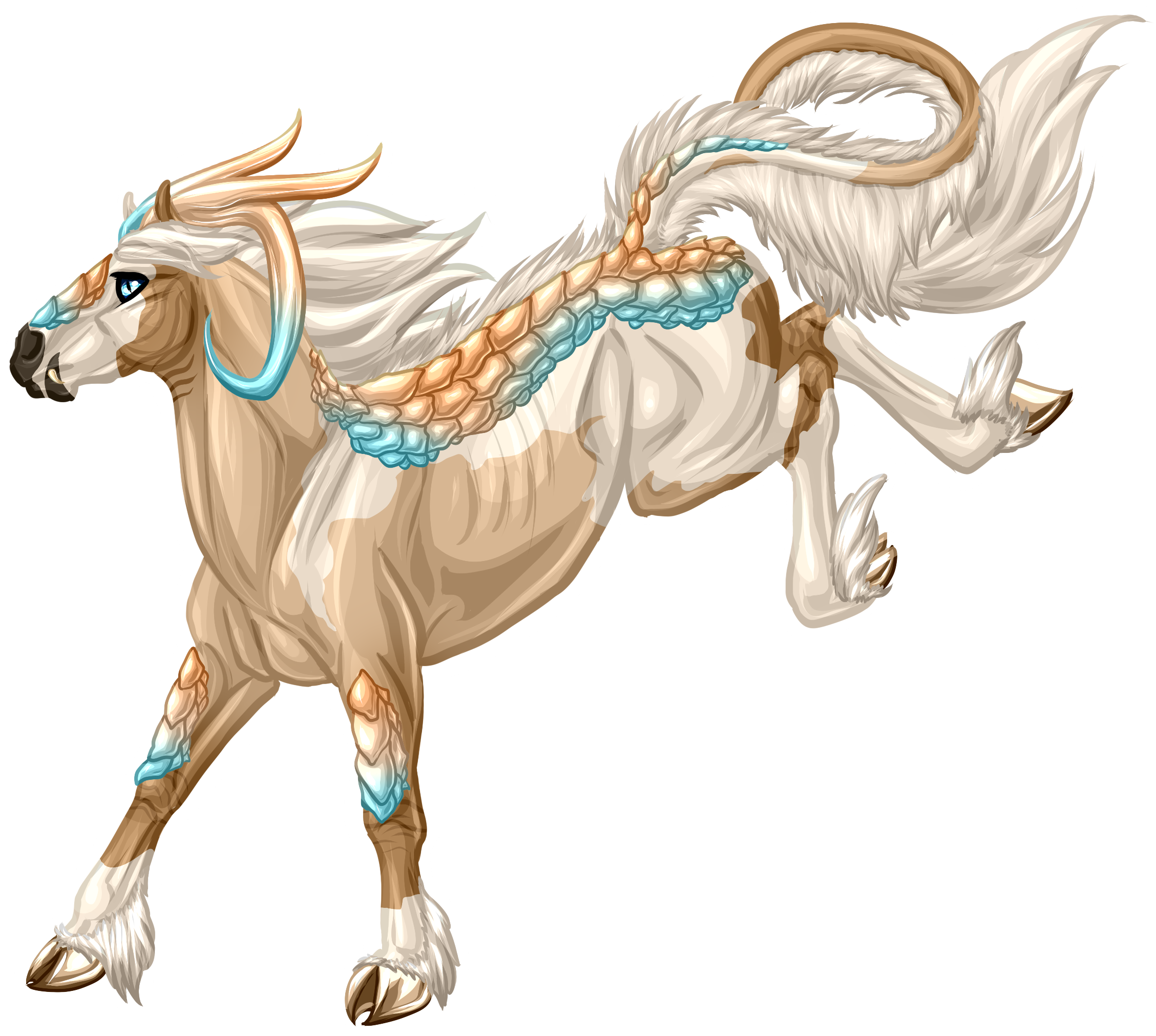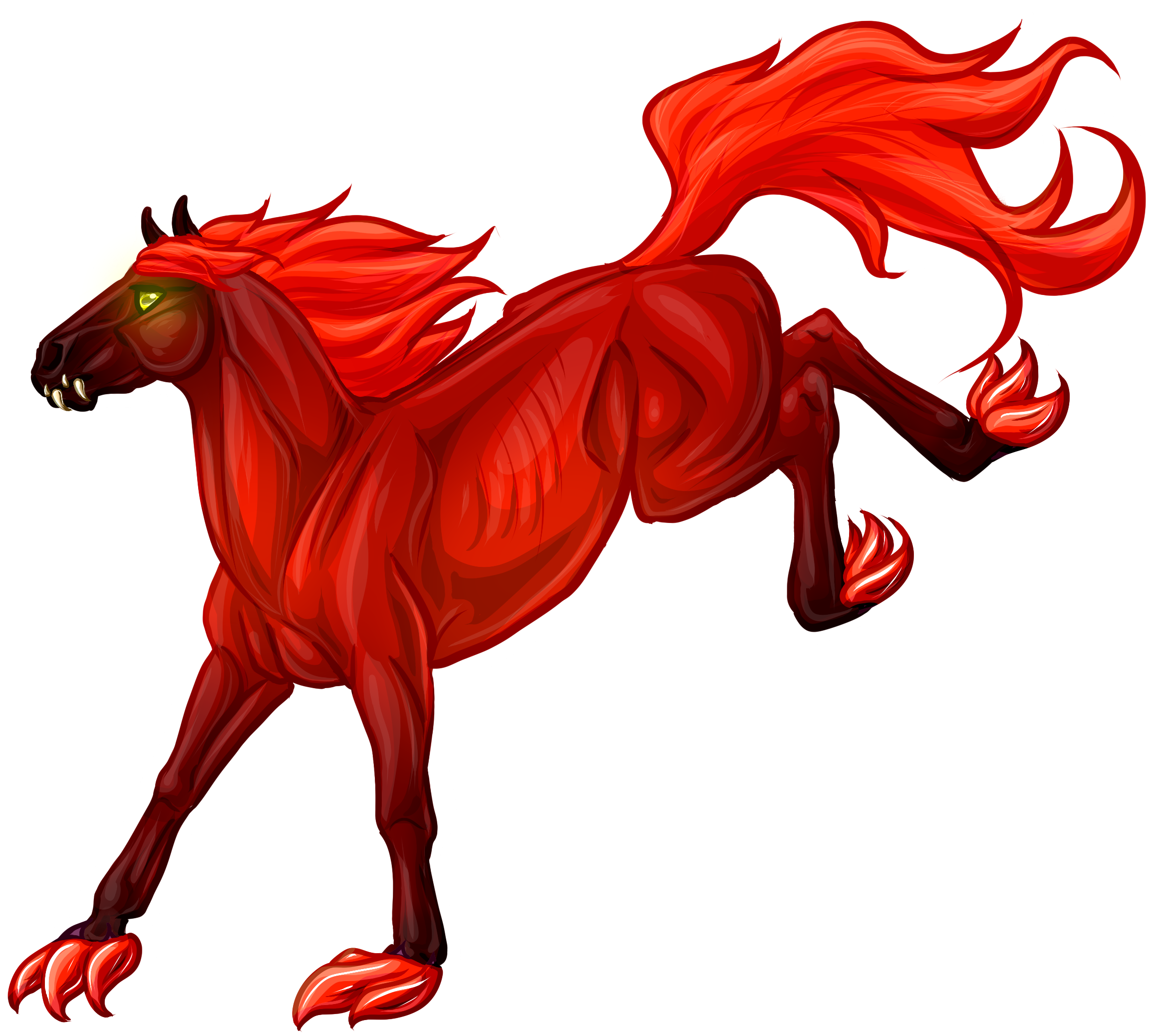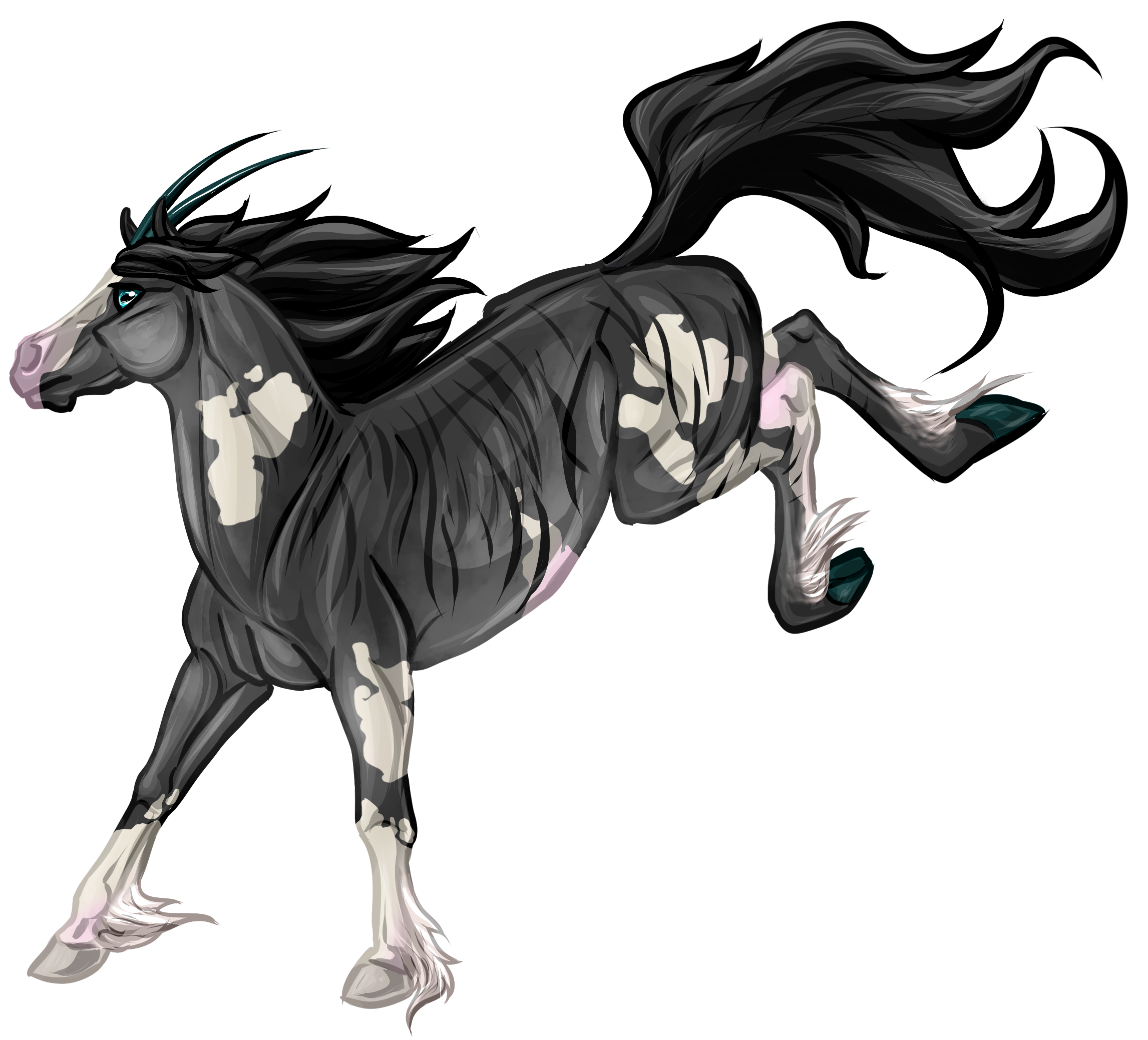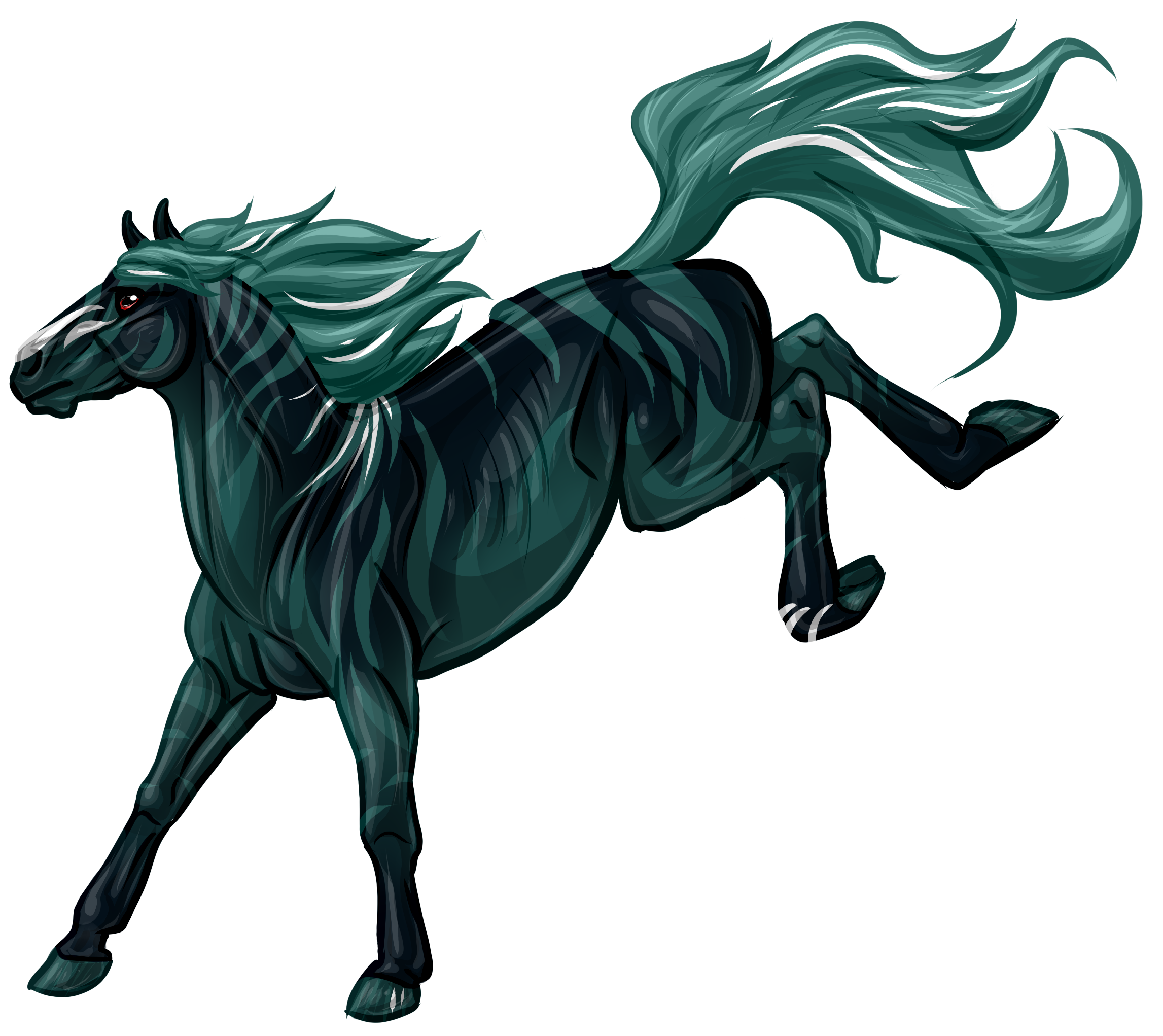Player Group: Equine Herds
Welcome to BTACD's player group: equine herds! Here you will find official herds of equine species, including but not limited to all variants of unicorn, pegasi, alicorn, and many others. The most prolific of these is the unicorn subtype known as the equus, and the large Duscae Herd.
You can find several other animal groups as LPGs in the link below! These are fully player-run and player-created, with few restrictions and many different choices.
Lesser Player GroupsDuscae Herd
Largest of the equus herds in any Realm, the Duscae herd has existed since hornless unicorns - ousted from their original herds - began to congregate together many, many ages ago. They are accepting of any equine species, including unicorns, pegasi, and alicorns - though the vast majority of its members are equus. They are very protective of any equine that comes under their wing, of any species big or small. Harm against one member by another member is punishable by physical scarring, exile, or death - often involving both Athen and Reiza as punishers, if not the entire zelda'nn as well. In extreme cases, an errant, criminal equine will be chased down by the zelda'nn and disabled, while the Athen delivers the killing blow.
The Duscae herd travels between Realms seasonally; in the summer and fall, they can be found in the White Plains of Jes're'en in the Realm of Millirand; in the winter and spring, they can be found in the plains of Felnova's country of Vystriana. Generally, at the beginning of each migration, the Reiza and Athen will stay behind until every herd member has traveled to the new Realm via portal, before finally moving through themselves. They often stay until the first snow in Jes're'en, and the end of the spring rains in Felnova.
The entire herd is protected by the zelda'nn, led by the reigning Athen or, rarely, the Ri'valhe. The zelda'nn train for battle from adolescence to adulthood, and often serve the greater majority of their lives unless wounded to the point they can no longer fight. Often, small groups will range far from the herd to scout out safe places for foraging and trade, and these patrols may bring back both visitors to the herd and supplies for the luiyla and seinyn. Those that do enough for the herd to be considered heroes or heroines may be exalted to arthas, along with any children and whatever mate they currently have.
The Reiza leads the Duscae herd almost specifically; the Athen is often her chosen mate, and the leader of the protectors that keep the herd safe from harm. Athens can be challenged, and the challenger then assumes the Athen rank; the old Reiza can either accept the new Athen as her mate, or step down to follow the defeated Athen. The old Reiza chooses an heir before this happens, and in the event of an old Reiza stepping down, the reiza'hann will take the new Athen as her mate and become the new Reiza.
In the event of a cruel or otherwise unfit Athen, the old Reiza and new Reiza will drive the new Athen off, and the new Reiza will resume being heir while the leaders resume their reign. There is, however, no known way to unseat a Reiza, as she is the herd mother, and none dare challenge her reign.
Reiza (Queen);; Herd mother, and absolute ruler of the entire Duscae herd. Is generally mate to the Athen, though two mated Reizas have been reported in the past. Is considered the lead mare/boss mare and her word is law, in all matters of political and societal bearing. Reizas do not need an Athen to lead, and rarely may take a mate who is not of rank, though this is highly unusual. Called the 'Queen' by those not belonging to Duscae.
Athen (King);; Protector of the herd and leader of the zelda'nn, as well as anything having to do with defense of land and lives. Is mated to the reigning Reiza, and is often chosen through challenging, and winning, against the last Athen. Called the 'King' by those not belonging to Duscae; the rank title is a shortened version of the elven word 'athenus'.
Ri'valhe/Ri'valhia (Highlord/Highlady);; Highly respected advisors for both the Reiza and the Athen. Called the 'Highlord' and 'Highlady'' by those not belonging to Duscae.
Arthas (Lords and Ladies; Nobles);; The arthas are members of the herd that are of what's considered royal blood; gifted equines that have gained respect in a multitude of ways, from former Reizas and Athens, former Ri'valhes and Ri'valhias, to heroes and heroines of the herd and their assorted children. Arthas are often called valhe (lords) and valhia (ladies), especially by outsiders, as arthas is a very broad term. The reiza'hann is always chosen from the arthas' ranks. Called 'nobles' by those not belonging to Duscae.
Elra (Seer/Shaman);; A seer and head healer often referred to as the 'dreamspeaker' of the herd, though the formal rank is known as Elra. Almost always a mare, and blessed with dreams thought to be straight from the mouth of L'zayn. The Elra is the strongest of the herd's healers, and is not only responsible for training other healers, but also maintaining and passing down the oral history of the herd. Called the 'seer' by those not belonging to Duscae.
Luiyla (healers);; Any members of the Duscae herd who have healing abilities, and have been taken in by the Elra to be trained in the healing arts. Called 'healers' by those not belonging to Duscae.
Seinyn (Elders);; Older equines that can no longer perform their previous duties. Often, these will be tended to by foals and yearlings, and their advice and wisdom are respected by the entire herd. Called 'elders' by those not belonging to Duscae.
Zelda'nn (warriors);; The protectors under the Athen that keep other herd members from harm. Some zelda'nn will also be of artha rank, but dedicate themselves to the art of war. These zelda'nn are all led by the leading stallion, most often the Athen or - if there is no reigning Athen, then the currently reigning Ri'valhe. Called simply 'warriors' by those not belonging to Duscae.
Herd Members;; Any unranked equine of any age belonging to the Duscae herd.
Foals;; Herd members that are still considered children, from birth to adolescence; this also includes yearlings, which are those who have reached their first year of age.




